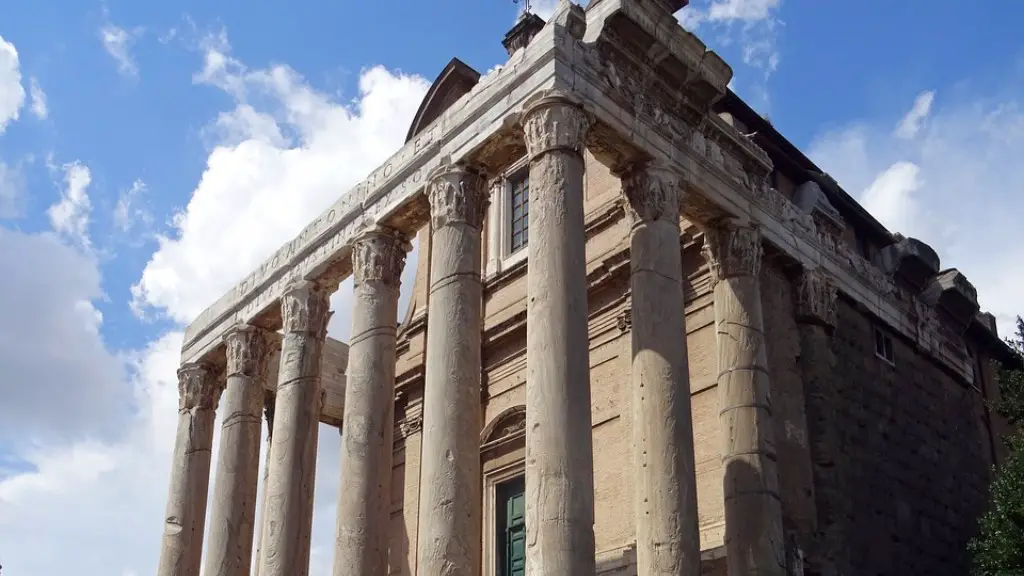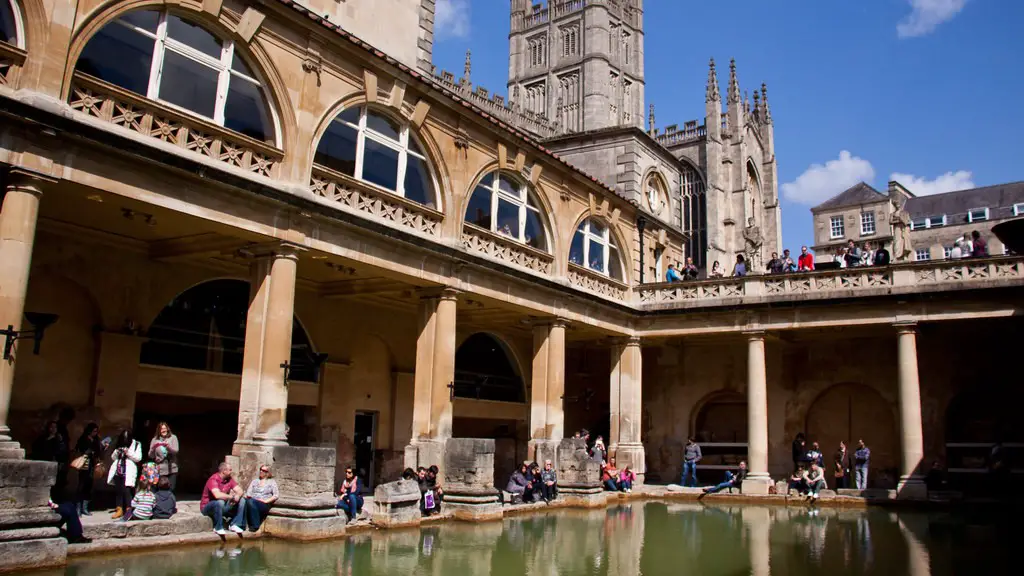Physical Environment
The physical environment of Rome’s conquered territories varied widely depending on geographical location. Rome had colonies on three continents: Europe, which consists of the Italian Peninsula, Sicily, and Gaul; North Africa, which includes present-day Tunisia, Algeria, and Libya; and Asia, which encompasses present-day Turkey, Syria, and Armenia. Rome’s provinces and colonies each had their own climate, terrain, and geographical features.
Under Roman rule, most people in the provinces and colonies lived in rural or small towns and villages. Many of these settlements were clustered together along rivers, near sources of food, and in agricultural areas. In some regions, Roman colonization reduced the amount of drought and flooding.
Economy and Trade
The economy of the Roman Empire was based on trade, taxation, and labor. Rome’s provinces and colonies provided much of the raw materials the capital needed for food, clothing, and luxury items such as jewelry and ceramics. The local economies of the provinces and colonies were bolstered by the trade of goods between regions.
The Roman conquerors imposed a number of taxes on their territories, which increased revenue for the capital and helped pay for the upkeep of the empire’s military, infrastructure, and public services. Taxes included a tithe on agricultural production, a head tax on individuals, and taxes on trade.
The Roman government also provided employment opportunities for its conquests. Those who chose to work for the government were paid in wages and in-kind services such as housing, clothing, and weapons. This helped expand the local economy and encouraged the development of businesses and dispensaries.
Legal Status and Rights
Although Roman law provided some minimal rights to all its inhabitants, conquered people had a different legal status, known as dediticii. Dediticii were subjects of Rome who did not have the same rights and privileges as Roman citizens.
Dediticii were subject to Roman taxation, and military service was strongly encouraged. In some cases, they were also required to pay an annual tribute to the Roman state. Dediticii did not have the same legal rights as Roman citizens and were forbidden from holding public office or exercising certain rights.
Role of Religion and Beliefs
Religion and superstition played an important role in the lives of those under Roman rule. People from different cultures and religions gathered in the cities, forming a diverse religious landscape. Though Roman paganism was the primary religion in conquered territories, different monotheistic and polytheistic faiths also co-existed.
People under Roman rule believed in a wide variety of superstitions, such as divination and omens. These superstitions were believed to influence their daily lives, giving them insight into the future and providing guidance in their decision-making. Religion and superstition were commonly practiced with the hope of appeasing the gods and gaining their favor.
Social Hierarchy
Under Roman rule, social hierarchy was based on citizenship and wealth. The Roman citizens, known as civitates, enjoyed the most rights and privileges, such as the right to vote, own land, and practice some professions such as law and medicine.
Socially, citizens had a better status than conquered people. They were not required to participate in military service or pay tribute, and they were exempt from most taxes. In some cities, citizens had a separate court of law, with their own judges, where they could resolve disputes among themselves and bring lawsuits against other citizens.
The conquered people, or dediticii, were at the bottom of the social hierarchy. They had less freedom, no legal rights, and were subject to taxation and military service.
Cultural Impact
The Roman Empire brought dramatic changes to the cultural landscape of its conquered territories. Ancient Roman culture, including language, religion, law, and entertainment, blended with the cultures of the conquered people.
The Latin language spread throughout the Roman Empire, as did Roman architecture and sculpture. The Roman legal system and political structure also had a lasting effect, with many forms of government and legal systems still in existence today in the Mediterranean region.
The Romans also introduced a variety of cultural entertainments to their provinces and colonies. Along with theatres and amphitheatres, there were also baths, arenas, and hippodromes. These entertainments provided rich sources of entertainment for the people under Roman rule.
Daily Life in Summary
Daily life under Roman rule was varied depending on the physical environment of each region, the economy, legal status, religion and beliefs, social hierarchy, and cultural impact of Rome’s vast empire. Most people lived in rural or small towns and villages, paid taxes, and worked for the Roman government. They were subject to Roman law and had minimal rights. Religion, superstition, and cultural entertainments were commonplace, as was a social hierarchy based on citizenship. The Roman Empire brought with it dramatic changes to the cultures of each province and colony.
Role of Roman Women
In contrast to the privileges of Roman men under Roman rule, women were seen as second-class citizens. Even though Roman men and women had the same legal status, Roman women could not hold public office, vote, or attend public events. In addition, Roman women were discouraged from taking part in educational and professional activities.
However, Roman women did not have the same legal restrictions as the conquered people, and their status was considered to be better than that of their counterparts in other civilizations. Roman women could own and manage property, a privilege which was not allowed to even educated women in Greece and Egypt at the time. Although they were not allowed to bear arms or participate in war, they were respected and could act as protectors of their families and households.
Roles of Religion and Beliefs
Roman religion provided a spiritual landscape for the conquered people living under the Roman Empire. Worship of the gods was very important and those who lived under Roman rule had access to various religious practices and superstitions. Depending on their social status, people could participate in religious rituals, practices, and festivals.
Roman religious beliefs impacted the everyday lives of Roman citizens and conquered people alike. Roman beliefs and superstitions were intertwined with mythological gods, as well as people’s desire for protection from death and suffering. By relying on the gods to grant protection and favors, people in the Roman Empire placed their trust in the supernatural and prayed for guidance, intervention and strength from their gods.
The Power of the Military
The impressive reach of the Roman military was a constant reminder of the reach of Rome’s power and influence. Through its impressive and sophisticated tactics and military campaigns, Roman armies were able to conquer and control vast portions of Europe and the Mediterranean region. The conquered people were often left in awe of the Roman army’s strength and ability to maintain order.
The presence of Roman soldiers in the conquered territories had both positive and negative effects. On one hand, they provided protection and stability against external threats, as well as foreign conquest and invasion. On the other hand, they could be oppressive, demanding high taxes and military service from the conquered population. Roman soldiers also had no qualms about using violent and brutal methods to maintain order and control.
Life under Roman Rule
The Roman Empire brought about profound changes to the lives of the people it conquered. From the economy and legal standing to religion and superstitions, Roman rule had a significant impact on daily life. People from different cultures and religions gathered in the cities, forming a diverse religious landscape intertwined with Roman cultural, religious, and legal influences. Roman soldiers provided protection and stability, but could also be oppressive when it came to taxation and military service. Ultimately, the Roman Empire was a powerful and influential force, and its presence was felt in every aspect of daily life.


